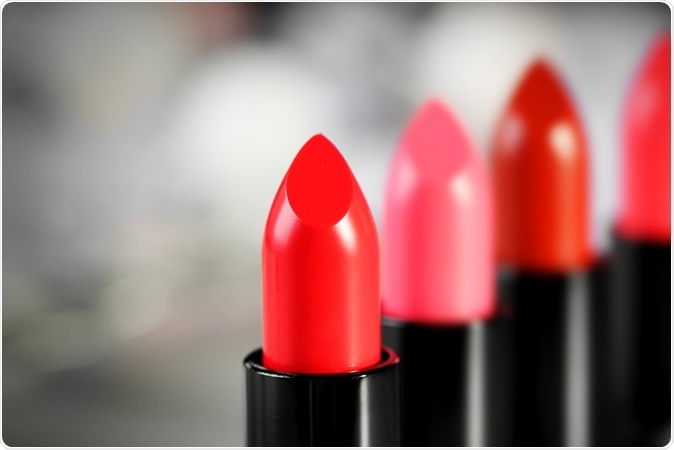According to a new study published yesterday in the Journal JAMA Internal Medicine, the problems related to the use of personal care products and cosmetics have nearly doubled in the last couple of years. Hair care products lead the race among the number of people unhappy with them. Two other problem areas include skin care products and tattoos.

Image Credit: Africa Studio / Shutterstock
Researchers from the Northwestern University for this study looked at all the complaints that were lodged at the Food and Drug Administration (FDA) from 2004 to 2016. They collected these reports from the FDA's Center for Food Safety and Applied Nutrition's Adverse Event Reporting System. Under this system not only health care professionals but also consumers can submit complaints if they have faced any untoward reaction or side effects after using personal care or cosmetic products.
Results showed that there were 706 related adverse events reports in 2015 and this number rose to 1,591 in 2016. Over the 12 years that this system of reporting was studied, the reports rose by 78% compared to previous years in 2015 and rose by 300% in 2016 write the researchers. There were total of 5,144 adverse events and an average of 396 events per year before 2015.
Lead author of the study, Dr. Steve Xu, a dermatology researcher at Northwestern University Feinberg School of Medicine in Chicago, warns that this was the proverbial tip of the iceberg. The actual number of adverse events may be higher as many reports were never filed. More data would be needed to get the full picture he explained. This study however was a step in the direction he said and since it starts a discussion more reporting is expected. He said that it is vital to be able to measure the magnitude of the problem in order to manage it effectively.
Results also reveal that many of the reports come against a specific product WEN by Chaz Dean hair care products. There have been complaints about hair loss, breakage, thinning, rash and itching after use of these products. In 2014, the FDA began investigating this product. By last November, there were 1,386 complaints regarding this product lodged with the FDA. FDA also found that Chaz Dean Inc. and Guthy Renker LLC have already received more than 21,000 complaints regarding the product. However most of these are not reported to the FDA since the laws do not mandate companies to reveal these complaints to the FDA. FDA investigation notwithstanding, the products continue to remain on the shelves. FDA actually has no authority to recall cosmetics products but may recommend such recalls. In addition manufacturers need not get an approval stamp from the FDA before selling any cosmetic product. According to Dr. Robert Califf who was earlier the head of FDA, the problem lies in FDA’s limited ability to regulated cosmetics and personal care products. The rules that are in place since 1938 need change he said in an editorial published alongside the study in the journal.
Xu reassures that most cosmetics are not bad and may be used safely. He said that in general these are a safe class of products.
According to a statement from the Personal Care Products Council, it is vital that adverse events are reported. This council represents the cosmetic and personal care products industry. The statement reiterates that most cosmetics are safe and ok to use. The problems encountered are seldom serious and in general extremely rare.
Meanwhile FDA insists and all adverse events to any cosmetic products or personal care products are reported.